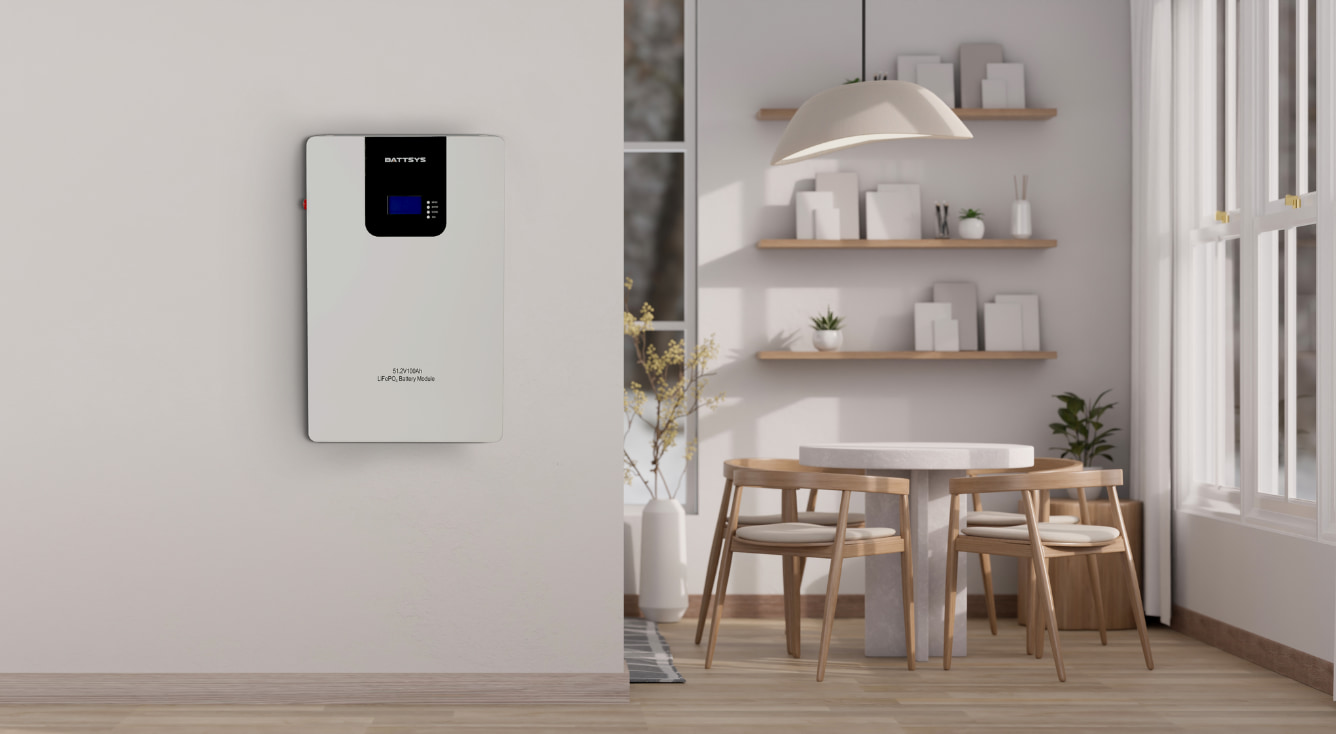
I. Definition and Pros/Cons of Low-Voltage Home Storage Systems
Definition: Low-voltage battery systems operate at 12V – 60V and are commonly used in off-grid solar solutions. Typical home storage batteries are 48V or 51.2V, focusing on safety, ease of installation, and cost-effectiveness, especially where high continuous power output is not needed.
Pros:
High Safety:Lower risks in use and maintenance, suitable for home applications.
Cost-Effective:Lower design and installation costs, with mature technology.
Modular Design:Many products can be easily expanded to meet varying power needs.
Easy Installation:Simple setup with low maintenance costs.
Cons:
Low Energy Density: Requires larger batteries for the same energy capacity.
Higher Energy Loss: Higher current leads to increased temperature and energy loss.
Slow Charge/Discharge: Lower efficiency compared to high-voltage systems.
II. Definition and Pros/Cons of High-Voltage Home Storage Systems
Definition: High-voltage battery systems are defined as having a rated voltage above 90V. They are paired with three-phase hybrid inverters, handling high power loads with greater efficiency for long-duration energy output.
Pros:
High Energy Density: Stores more energy in less space.
Higher Transmission Efficiency: Reduces current, lowering heat and energy loss.
Suitable for High Power Loads: Supports multiple high-demand appliances.
Fast Charge/Discharge: Quick response times.
Cons:
Safety Risks: Requires higher safety measures and professional installation.
Higher Initial Costs: More complex components increase upfront investment.
Complexity: Design and integration can be complicated, needing extra equipment and support.
Comparison of Low and High Voltage Home Storage Systems
|
Feature |
Low-Voltage Home Storage |
High-Voltage Home Storage |
|
Safety |
High safety, low risk |
Higher risk, needs precautions |
|
Cost-Effectiveness |
Low design and installation costs |
Higher initial costs, complex components |
|
Energy Density |
Lower, larger batteries needed |
Higher, compact storage |
|
Transmission Efficiency |
Lower, higher losses |
Higher, reduced losses |
|
Charge/Discharge Speed |
Slower, lower efficiency |
Fast, quick response |
|
Modular Design |
Flexible expansion |
Complex design, may need extra support |
|
Performance |
Better for high power use |
High safety requirement environments |
Application Scenarios Comparison
Low-Voltage: Suitable for residential use, small solar systems, emergency backup, and high-safety environments.
High-Voltage: Ideal for high-power residential or commercial applications and long-distance transmission.
E-Mail: inquiry@fentbattery.com
Tel: 0086 20 3901-1403
Address: No.3, Dongli Road, Xili, Dongyong Town, Nansha District, Guangzhou City, China
Copyright@ China lithium ion battery manufacturers & suppliers & producers | Lithium Battery Factory & Company-BATTSYS Sitemap